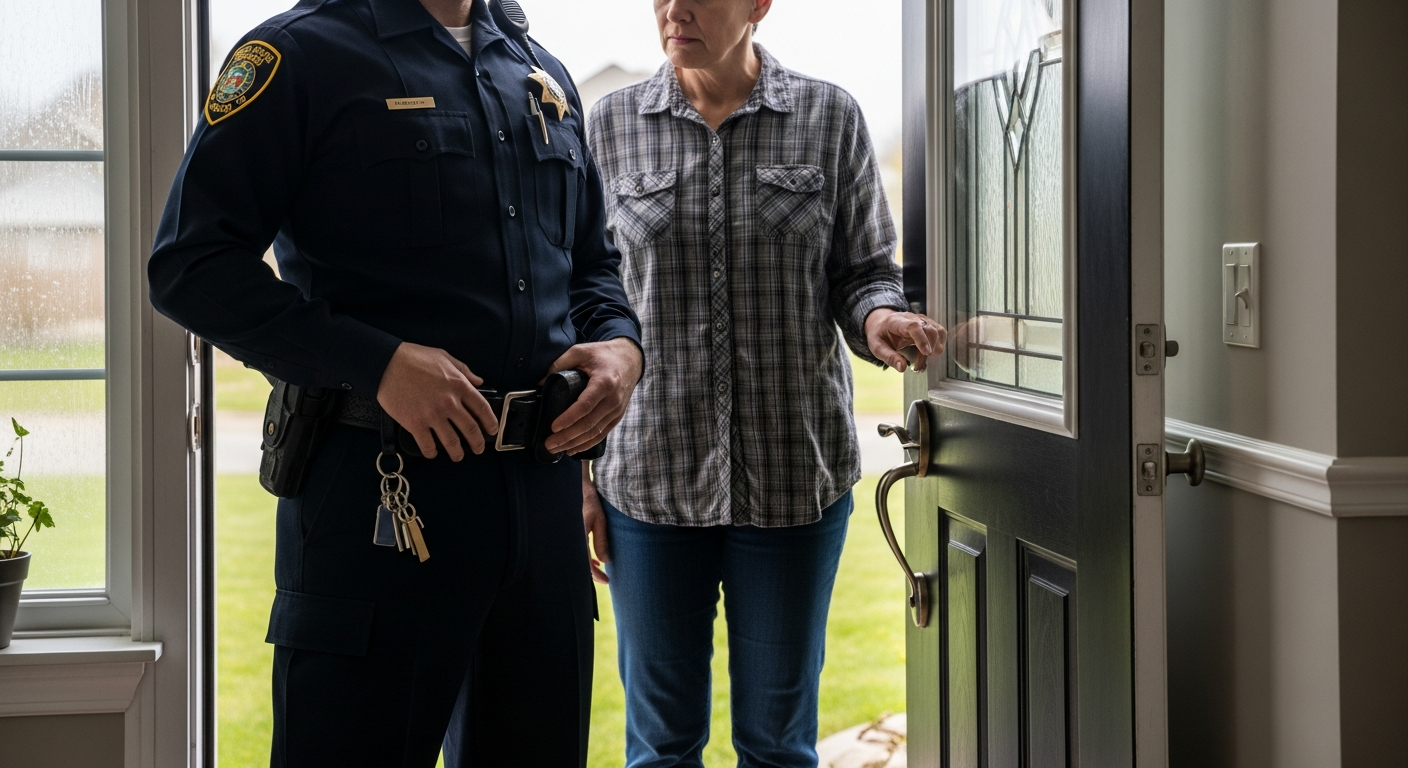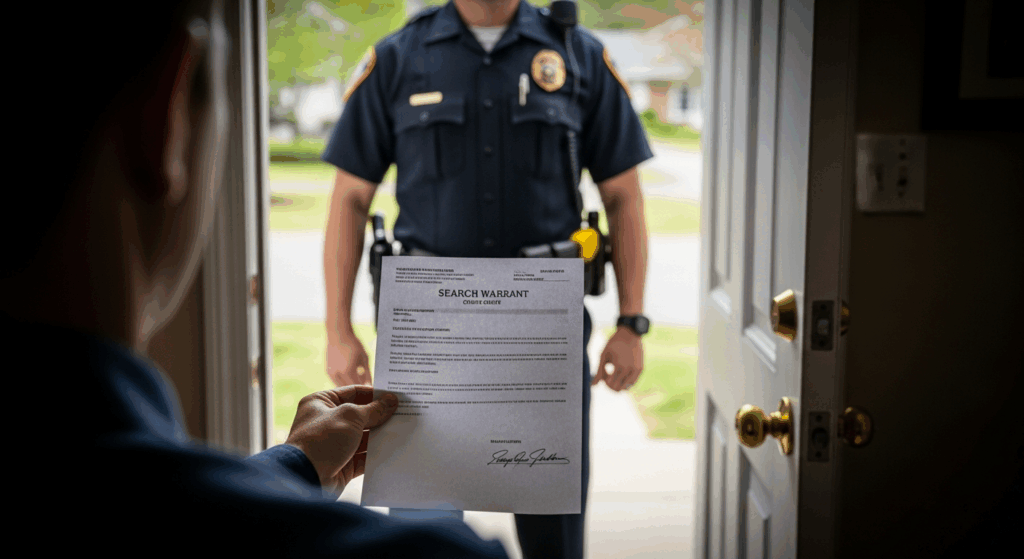
When law enforcement knocks at your door or seizes property in Indiana, one of the most critical questions is this: Was the search lawful?
At Eskew Law, our mission is to stand with those facing criminal charges and ensure that the investigative tools used by police comply with constitutional protections. According to an Eskew Law attorney, “Law enforcement must play by the rules, and our job is to hold them to those standards.”
If you are looking for a criminal defense lawyer in Indianapolis, knowing the ins and outs of searches with and without warrants can make a major difference in how your case is handled. Here is what you should know.
Why Searches Matter: More Than Just Evidence
A search is more than just police rummaging around. It touches on one of our most fundamental rights, protection against unreasonable searches and seizures under the U.S. and Indiana Constitutions.
What happens during a search, and whether it is lawful, can affect whether the evidence gathered is admissible in court. That, in turn, can make or break a case.
Let us walk you through two broad categories: searches with a warrant and those without, highlighting the distinctions and what they mean for you in Indiana.
If you are under investigation, you might wonder, “Can the police search my property without a warrant?” and “What rights do I have if they do?” The answers depend on the situation.
Searches With a Warrant

A warrant is generally the safer way for law enforcement to conduct a search. It means a judge reviewed facts and found probable cause. In Indiana, the standard is guided by both federal and state constitutional protections.
Key elements of a valid warrant include:
- A sworn affidavit establishing probable cause, a fair probability that evidence of a specific crime will be found at the place to be searched.
- A clear description of the place to be searched and items to be seized—no general “fishing expeditions.”
- Issuance by a neutral and detached magistrate.
What we ask: If the police present you with a warrant, were the above elements met? At Eskew Law, our Indianapolis criminal defense lawyers scrutinize the affidavit and underlying facts. If we find the warrant is deficient, we may be able to file a motion to suppress the evidence.
Questions we often hear:
- “Is this warrant valid?”
- “Did the judge have enough information to approve it?”
- “Did the warrant become stale?”
- “Was the underlying affidavit full of hearsay or knowingly false statements?”
In Indiana, courts have held that conclusory statements alone do not establish probable cause and that hearsay must meet reliability criteria.
If the warrant fails on any of these fronts, it may be challenged and if successful, the evidence collected may be excluded from use in court, putting the prosecution at a serious disadvantage.
Searches Without a Warrant
Warrantless searches are more complicated and present a significant risk for law enforcement, and an opportunity for a strong defense. In many cases, police can search without a warrant, but only under specific exceptions.
Common exceptions include:
- Consent Searches: If you voluntarily and knowingly agree to the search, no warrant is required.
- Exigent Circumstances: An emergency (such as the risk of destroying evidence, danger to life, or a suspect’s escape) may justify a search.
- Plain View Doctrine: If an officer is legally present and sees contraband or evidence in plain view, they may seize it without a warrant.
- Automobile Exception: Vehicles can be searched without a warrant if there is probable cause to believe they contain evidence of a crime, though specifics vary by case and jurisdiction.
Important questions to ask:
- Did you consent, and was that consent freely given (without coercion)?
- Was there a valid officer presence granting them lawful entry?
- Did the emergency exception actually apply, or was this just a convenience?
- If a vehicle search occurred, did the officers have the level of probable cause and risk needed for the exception?
At Eskew Law, we explore every angle. If the government cannot show that a warrantless search fell within a valid exception, we may again move to suppress unlawfully obtained evidence. Indiana law emphasizes the exclusionary rule: evidence secured in violation of the Fourth Amendment and its state equivalent is typically inadmissible.
What You Should Do If You Are Facing a Search
If the police are at your door or accessing your property or vehicle, you have rights—and actions you can take to protect them.
Do’s:
- Ask whether the officers have a warrant. If they do, request to see it and check whether it covers the proper place and items.
- If they ask for consent, do not feel forced. You may politely decline.
- Record what you can (safely), including the date, time, badge numbers, and what was searched or taken.
- Contact a criminal lawyer promptly. At Eskew Law, we recommend timely action because delays can reduce your ability to challenge a search.
Don’ts:
- Do not interfere with officers executing a valid warrant. That may create additional legal trouble.
- Do not destroy evidence; obstruction can lead to criminal charges and may invalidate your right to challenge the original search.
- Do not assume everything the police tell you about your rights is correct; law enforcement may not explain everything.
- Do not answer questions about anything they find.
Why Choosing the Right Defense Attorney Matters
When your rights during a search are at issue, the difference between retaining the proper lawyer and proceeding without experienced counsel can be substantial. At Eskew Law, we are not only criminal lawyers in Indianapolis, Indiana, but also dedicated to defending clients across Central Indiana who face complex criminal allegations.
Our team has decades of combined experience. We understand how to push back on improper searches, whether the government relied on a weak warrant or an exception failed to apply. Our approach is tailored to your situation, your life, your goals, and your best outcome.
Attorney Christopher Eskew says, “When police skip steps or shortcut rights, we hold them accountable. It is not enough to be charged; we fight. We defend.”
If an improper search or seizure is part of your case, the evidence may be compromised, and your defense could benefit significantly.
Protecting Your Rights in Indiana
Searches with and without warrants pose serious consequences for your case. Whether you’re dealing with misdemeanor or felony charges, how a search was conducted can shift the legal landscape irrevocably. With our firm’s experience in Indianapolis and throughout Indiana, we ensure your rights are defended—from the moment police knock on your door to how evidence is used at trial.
If you are looking for a dedicated defense attorney in Indianapolis, IN, reach out to Eskew Law. Together, we will examine the facts of your case, answer your questions, such as “Was that warrant proper?” or “Could they search without one?”, and craft a defense aimed at suppressing unlawful evidence and protecting your future.
Don’t wait. The sooner we act, the stronger your defense can be. Call us today.








